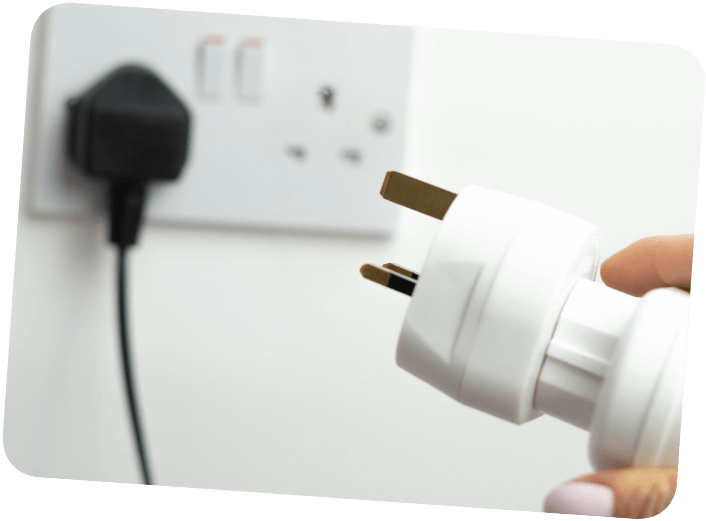
Building Safety
Electrical Safety

A large number of domestic fires are caused by electrical faults. Read our guide to electrical safety
Electrical testing
As your landlord we have a duty and legal responsibility to make sure that all our electrical installations are maintained so they are safe for you to use. Your home should have a check every five years and this involves a visit by an engineer. The visit is similar to a gas service although the appointment takes longer.
Things you can do to keep your electrical equipment safe
It's vital to look after electrical equipment – just because something works doesn't mean it's safe. To make sure your home is safe, you should inspect electrical fittings and equipment to make sure they're in good condition. Look out for the following:
Plugs
- Plugs should fit tightly into sockets.
- Their casing should be free from cracks.
- Watch out for burn marks or signs of overheating.
- The cable should be firmly secured in the plug.
- None of the pins should be bent.
- The cardboard label on the bottom of the plug should be removed.
- Plugs shouldn't rattle.
Leads
- Leads should be free from cuts, fraying and damage.
- Don't use two- or three-way multiway adaptors.
- If you're using an extension lead, make sure it's fully uncoiled.
Sockets
- Sockets should be free from cracks or other damage.
- Check them for burn marks and signs of overheating.
- Make sure they're properly secured to the wall.
- Make sure the switch works properly.
Lighting
- Check that your light fittings are not visibly damaged, or lampholders if damaged, scorched or corroded.
- Check downlighters and their surroundings for signs of overheating such as curled labels and discolouration or scorching.
Consumer units and electricity meters
- Check the consumer unit (fusebox) and electricity meter.
- Check that you are not storing combustible materials around your consumer unit and electricity meter.
- Test regularly the RCDs in your consumer units by pressing the Test button every 3 months. Press and release the "Test" button on the RCD/RCBO and the power should "trip". If the RCD/RCBO fails to operate correctly please report to Town & Country Housing (tenants). Leaseholders and shareholders should contact a skilled electrician. Note, RCDs protect people.
Carrying out electrical work yourself
You must have our permission before any electrical work is carried out in your home – and we'll need confirmation that the work has been done by a qualified person.
Electrical work must always be carried out by an electrician registered with the National Inspection Council for Electrical Installation Contracting (NICEIC).
The NICEIC website allows you to search for registered electricians in your area, as well as providing safety advice for householders.
